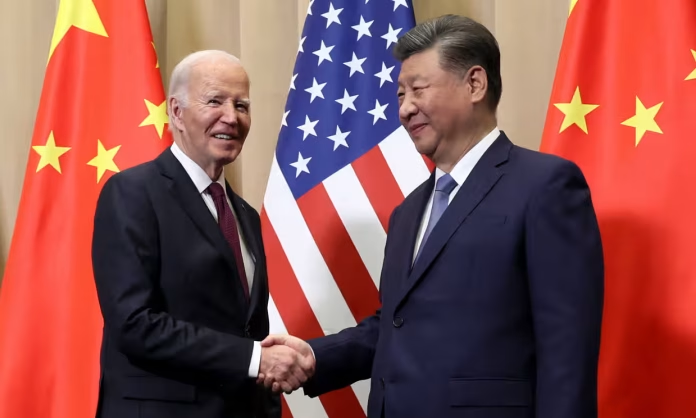Chinese President Xi Jinping met with US President Joe Biden in Lima, Peru on Saturday. The two leaders discussed a number of important issues, including Taiwan, relations between the two countries and co-operation in fields of common interest. In the meantime, the EU will demand responses from Beijing over reports of increased military coordination between China and Russia.
The meeting between the leaders of China and the United States came a year after the two presidents last met. The two sides reviewed the path of China-US relations over the past four years. During the 2022 meeting in Bali, Xi emphasised China’s four red lines on the Taiwan issue: path and system, democracy and human rights, and the right to development are the foundation of the mansion. During the meeting in San Francisco in 2023, he said that China and the US should jointly develop correct perceptions, effectively manage differences, promote win-win co-operation, take responsibility as major countries and promote people-to-people exchanges.
In Lima, Xi insightfully enumerated seven experiences the two countries should learn from the course of their relations. The two sides should have the right strategic perception, match words with actions, treat each other as equals, not challenge red lines and paramount principles, engage in more dialogue and co-operation, respond to people’s expectations, and step forward to take on the responsibilities of big countries.
On the issue of Taiwan, President Xi Jinping stressed that the one-China principle and the three China-US joint communiqués are the political foundation of their relations. According to the Chinese leader, peace and stability on both sides of the strait and separatist activities for “Taiwan independence” are incompatible, according to China’s foreign ministry.
On the South China Sea issue, Xi stressed China firmly defends its territorial sovereignty and maritime rights and interests in the South China Sea. Dialogue and consultation among the states concerned is always the best way to resolve differences in the South China Sea. The US should not interfere in bilateral disputes over relevant islands and reefs, nor should it help or encourage the impulse to engage in provocations, according to Xi.
President Xi Jinping expressed his willingness to make joint efforts with President Biden and his successor to achieve this goal. President Biden, on his part, said that the US-China relationship holds the most important relationship in the world, not only for the two peoples but also for the future of the world. Both governments have a responsibility to the two peoples and the world to ensure that competition does not turn into conflict. Both sides support each other’s bid to host the APEC and G20 meetings respectively in 2026.
According to Biden, the US does not seek a new Cold War and neither does it seek to change China’s system. In addition, US-led alliances are not aimed against China and do not support “Taiwan independence” as they do not seek conflict with China and do not see their Taiwan policy as a way to compete with China.
Both presidents believe that the two sides had a frank and constructive dialogue on Artificial Intelligence. Both sides co-sponsored each other’s resolutions at the UN General Assembly on AI. They affirmed the need to strengthen international co-operation and promote AI for the good of all. They emphasised the necessity of maintaining human control over the decision to use nuclear weapons.
China may face sanctions from the EU
A senior European Union official, wishing to remain anonymous, stated on Friday that the EU would press Beijing for answers over reports that a Chinese company was producing military drones for use in the Ukraine-Russia conflict, POLITICO said. The Union needs to determine whether Beijing knew about the firm’s activities and whether the production of the drones was “direct cooperation on military equipment between China and Russia.”
We have had reports from intelligence sources on the existence of a factory inside China producing drones which are shipped to Russia. If we finally confirm there is a transfer of drones [from China to Russia], then that will have consequences, the official said, but did not specify what consequences await China if the information is confirmed.
The production of drones in China is expected to top the agenda of a meeting of European foreign ministers in Brussels next week, other officials said. While it is not yet known what action might be taken, one option being considered is adding more Chinese companies to the list of third-country firms subject to EU sanctions.
In response to a question on what the EU has to figure out before taking further action, the official said the bloc is trying to determine whether the factory’s products were targeted at Russia, whether the drones were supplied to Russia and whether Chines were aware of the firm’s activities.
